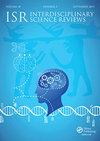人工代理与语义扩展博弈
IF 1
4区 综合性期刊
Q3 MULTIDISCIPLINARY SCIENCES
引用次数: 1
摘要
人工智能体通常使用传统上属于生命语义领域的词语来描述。我把这种现象称为语义扩展游戏。然而,像“自主的”、“聪明的”、“有创造力的”、“道德的”等重要词汇的语义延伸常常被认为是不令人满意的,这是通过大量使用反逗号或其他语法线索来表示的。这种做法反过来又招致了严厉的批评,这些批评通常指的是这些词的字面意思,以表明它们在描述人工智能体时的不恰当。因此问题来了:在理解人工智能的同时,我们如何恰当而明智地选择我们的语言?本文试图通过概述与人工代理相关的语义扩展游戏的主要特征,回顾相关的机会和风险,并提出一些如何玩好这个游戏的实用建议来回答这个问题。本文章由计算机程序翻译,如有差异,请以英文原文为准。
Artificial agency and the game of semantic extension
ABSTRACT Artificial agents are commonly described by using words that traditionally belong to the semantic field of life. I call this phenomenon the game of semantic extension. However, the semantic extension of words as crucial as ‘autonomous’, ‘intelligent’, ‘creative’, ‘moral’, and so on, is often perceived as unsatisfactory, which is signalled with the extensive use of inverted commas or other syntactical cues. Such practice, in turn, has provoked harsh criticism that usually refers back to the literal meaning of the words to show their inappropriateness in describing artificial agents. Hence the question: how can we choose our words appropriately and wisely while making sense of artificial agents? This paper tries to answer by sketching the main features of the game of semantic extension in relation to artificial agency, reviewing the related opportunities and risks, and advancing some practical suggestions on how to play the game well.
求助全文
通过发布文献求助,成功后即可免费获取论文全文。
去求助
来源期刊

Interdisciplinary Science Reviews
综合性期刊-综合性期刊
CiteScore
2.30
自引率
9.10%
发文量
20
审稿时长
>12 weeks
期刊介绍:
Interdisciplinary Science Reviews is a quarterly journal that aims to explore the social, philosophical and historical interrelations of the natural sciences, engineering, mathematics, medicine and technology with the social sciences, humanities and arts.
 求助内容:
求助内容: 应助结果提醒方式:
应助结果提醒方式:


